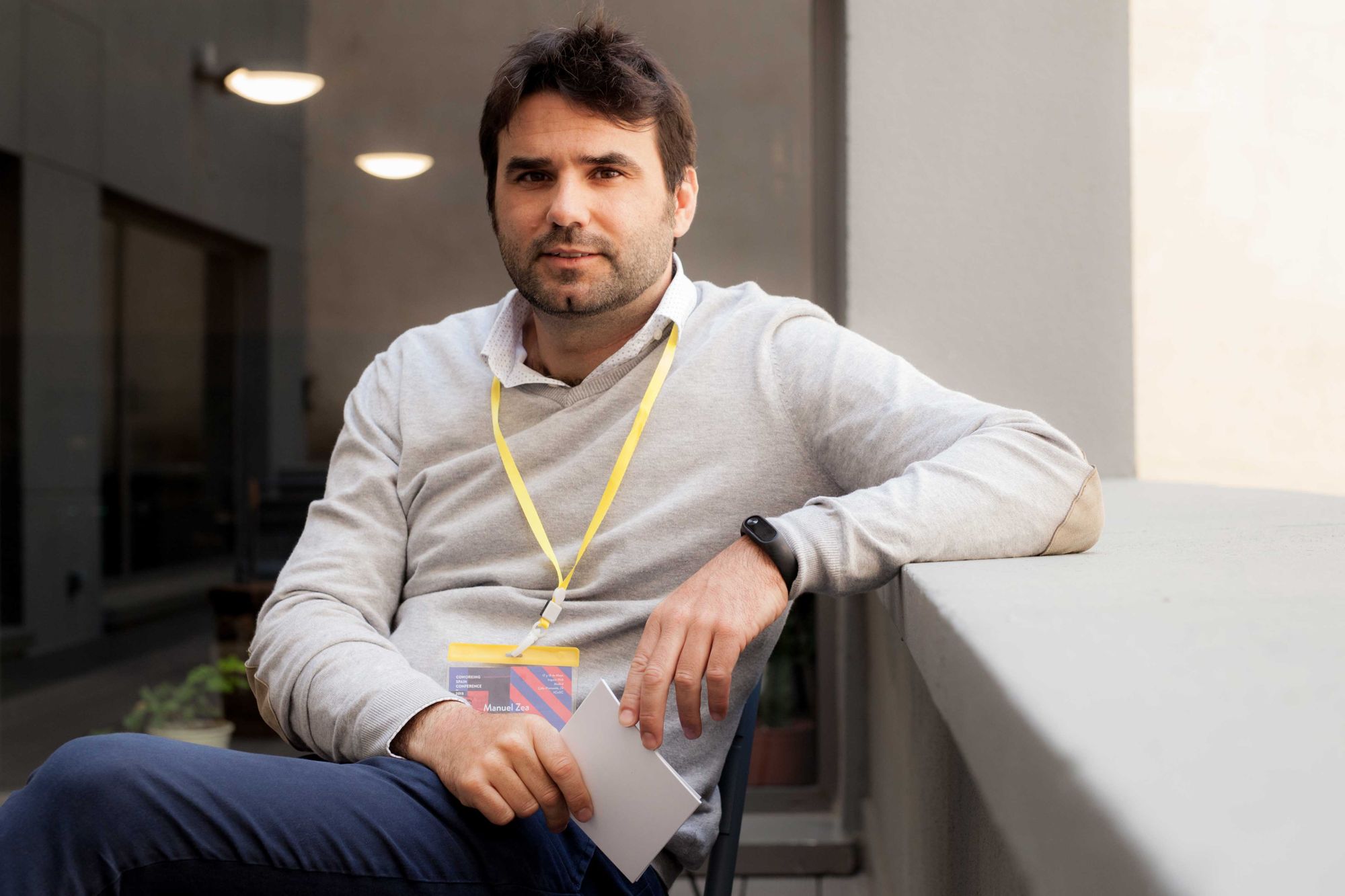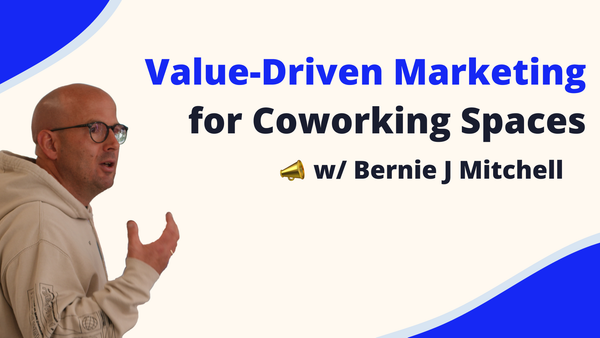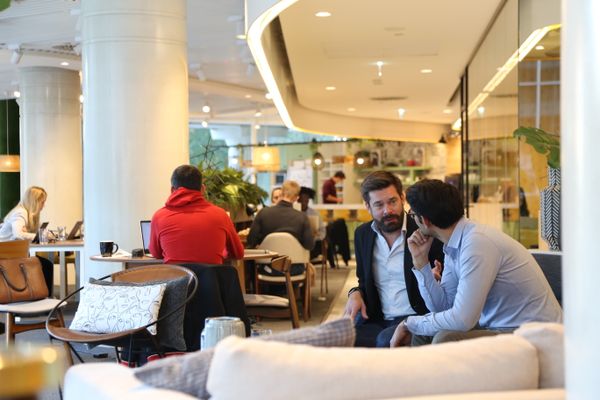Puedes leer este artículo en español aquí.
One could summarize Manuel Zea’s story by saying that he is the founder of CoworkingSpain and the Coworking Spain Conference—but that would be like saying that Babe Ruth was a baseball player. If you are in coworking and you have not heard of “Manu” I think it is time to share this piece of the Spanish coworking story.
It is a story of coincidences. Manu was in the right place, at the right time, with the right vision, and the right attitude... maybe there are too many coincidences to believe it was all due to coincidence. “I came to coworking purely by chance. It was 2006, my partner Sergio and I set up an architecture studio and while looking for a location we found a space that was too big for the two of us and we thought: it would be great if we could work alongside our friends in the same space. We told them about the idea and they thought it was great, so we transformed that motorcycle workshop into a modern workspace.” However, the idea of getting together with friends and sharing expenses was short-lived because as the space started to become a reality, none of the them joined the project. Manuel and Sergio didn’t give up and decided that the space could welcome other professionals in the architecture sector.
“We opened the space and talked about shared office or ‘easy office’ because we couldn’t find a better word for it. A year and a half later, reading an article in the newspaper, we found out that what we were doing had a name: coworking. We no longer had to invent anything but the space was still empty. I decided to hire someone in marketing to help. In those days the problem was very different from today: nobody searched for the word ‘coworking’ and it was difficult to position a space with these characteristics. In that effort, one of the things we achieved was speaking at the World Office Forum about the concept of coworking. I thought, I guess we just need something to fill the space. The auditorium was crowded and I was very nervous, when it was my turn onstage practically everyone left, but I did it anyway. When I got back to the space I posted the presentation on slideshare and forgot about it.”
“A few months later I got a call from a new conference being planned in Brussels [it was the Coworking Europe Conference 2010] and they asked me if I could talk about coworking in Spain; I started to call all the spaces that existed in Spain back then. I got the statistics, prepared a presentation, went to Brussels, and gave a talk.” You can imagine how the story goes: Manuel returned home, posted the presentation on slideshare but also created an online directory with the thirty spaces that were in Spain and called it CoworkingSpain. And this impulsive action of creating a directory was a seed that would sprout into everything that was to come.
“The CWEC in Berlin came in 2011 and shortly afterwards I was back in Spain, I thought that either I would organize a conference in Spain or someone else would beat me to it.” Manuel was going to the United States but that didn’t stop him from creating a poster and launching the idea on Facebook. The response? “A lot of people called us and I thought: we need to do this. In May 2012 the first edition of the CWSC was held at Impact Hub Madrid and Utopicus.” The first two years of the conference it was held in two different spaces, one for each day of the conference, a logistical nightmare for the whole organization.
What was a coworking conference like in 2012? “We were a bunch of friends who thought there was something interesting behind the concept. Seeing the progress from then until 2021, we see that there was a giant leap: we have developed from a ‘hippie’ concept to a giant industry, we have changed the concept of traditional office, we have managed to get banks to consider the model, or even real estate companies themselves.”
“We never imagined that we would get this far. The leap has been brutal.”
When did Manu first perceive that the sector was taking a leap? “In 2012 WeWork [founded in 2010] was starting to gain notoriety and I remember that it caught my attention. However, I think [in 2015] when Regus bought Spaces was the moment I thought: this is for real. Up until that point, the real estate industry didn’t pay attention to us and business centers saw us as something hippie, beneath their notice, but that acquisition demonstrated that this was no longer the case. A little further ahead the real estate companies would start to take a real interest and that changed the sector forever.”
If you aren’t already using Cobot as your coworking management software, give it a go! You’ll find that our features can help you run your coworking space more effectively and grow your community. Just sign up for a free trial or a live demo session. And if you have questions, our support team is all ears!
Happy Coworking!



